With so many different fruits and vegetables to juice and enjoy, I sometimes forget how simple it can be.
Take orange juice for example, a breakfast classic. Who doesn’t love a glass of fresh squeezed OJ?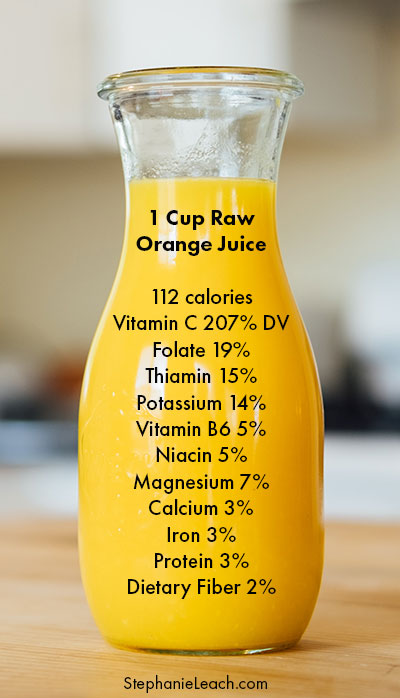
Unfortunately, those that don’t understand the power of fresh juice have often put fruit juice into the same category as sugar-sweetened beverages. There is no comparison.
So I was delighted to find a new study on the effects of 100% orange juice on markers of inflammation and oxidation, published in Advances in Nutrition. This was a scoping review, systematic review and meta-analysis of 21 interventional studies (16 controlled trials and 5 before-after studies) in 307 healthy and 327 participants at risk for heart disease, type 2 diabetes and other chronic conditions.
These studies looked at inflammation markers, including CRP or hs-CRP, IL-6, TNF-a, oxidized LDL and MDA.
What did they find?
“After consuming 100% OJ, healthy and at-risk participants showed significantly lower IL-6 concentrations, and lower, but nonsignificant hs-CRP and MDA.”
What is IL-6?
IL-6 stands for Interleuken 6, which acts as both a pro-inflammatory cytokine and an anti-inflammatory myokine. IL-6 stimulates the inflammatory and auto-immune processes in many diseases such as multiple sclerosis, diabetes, atherosclerosis, depression, Alzheimer’s disease, multiple myeloma, prostate cancer, rheumatoid arthritis, and intracerebral hemorrhage. There is some early evidence that IL-6 can be used as an inflammatory marker for severe COVID-19 infection with poor prognosis.
Glad to hear OJ significantly lowers IL-6!
Orange Juice Study Conclusions
The study authors concluded that “100% OJ may provide beneficial or null effects on numerous markers of inflammation and oxidative stress in these populations, although experimental data on long-term effects (beyond 3 mo of intake) are still lacking. In particular, 100% OJ may reduce hs-CRP and IL-6 concentrations over time in some healthy individuals and those at risk for chronic disease.”
The study authors noted that more large, well-designed studies are needed to increase confidence in conclusions.
I personally don’t need any more evidence to prove that orange juice – especially fresh, raw orange juice – is healthful and can be a delicious way to get some of my fruit intake.
100% Fruit Juice Benefits
Americans are only getting HALF the recommended fruit each day (The Dietary Guidelines for Americans 2020-2025 is a measly 2 cups.) The study authors recommend adding 100% fruit juice to whole-fruit intake to increase American’s total fruit consumption by >50% to help prevent various chronic diseases.
If you are wondering if whole fruit should be encouraged instead of fruit juice, they brought out the following points, which I highly appreciate:
- While much of the naturally occurring fiber and vitamin C are lost during processing, 100% fruit juices show similar vitamin and mineral content as equal quantities of whole fruit. (Note: This is referring to heat pasteurized fruit juice. Raw juice retains much more of the vital nutrients than heat pasteurized juice.)
- These juices retain much of the antioxidant nutrients and phytochemicals of the whole fruit, which can reduce both inflammation and chronic disease risk and support human health. (NOTE: Again, fresh raw juice will be much higher.)
- Analyses of NHANES 2003–2006 and 2013–2016 datasets found that, contrary to popular belief, dietary fiber intake among 100% fruit juice consumers was not lower than that in nonconsumers.
- Further modeling analyses of the 2013–2016 data for adults showed that replacing 100% fruit juice in the diet with isocaloric whole-fruit equivalents would increase fiber intake by just 1 g.
- Consumers of 100% orange juice (OJ) have shown higher intakes of bioactive flavonoids, lower added sugars, and higher-quality diets overall than nonconsumers of 100% OJ. The diets of 100% OJ consumers included more vitamin C, potassium, calcium, vitamin D, flavanones, and total flavonoids.
- Adult consumers of 100% OJ have also shown lower BMI values, waist circumferences, total cholesterol concentrations, and LDL-cholesterol concentrations compared with non-consumers.
- 100% orange juice can be part of a healthy diet. (Yess!)
I personally love to combine orange juice with vegetables such as cucumber, celery and leafy greens. Orange juice also goes great with root vegetable juices like carrot juice, beet juice and sweet potato juice. Making and drinking a vegetable juice that includes orange juice can be a tasty way to greatly increase the vitamins, minerals and disease-fighting phytonutrients in a person’s diet.
Ready for some orange juice recipes?
Cucumber Orange Romaine Lettuce Juice Recipe
Orange Twist Anti-Inflammatory Detox Juice




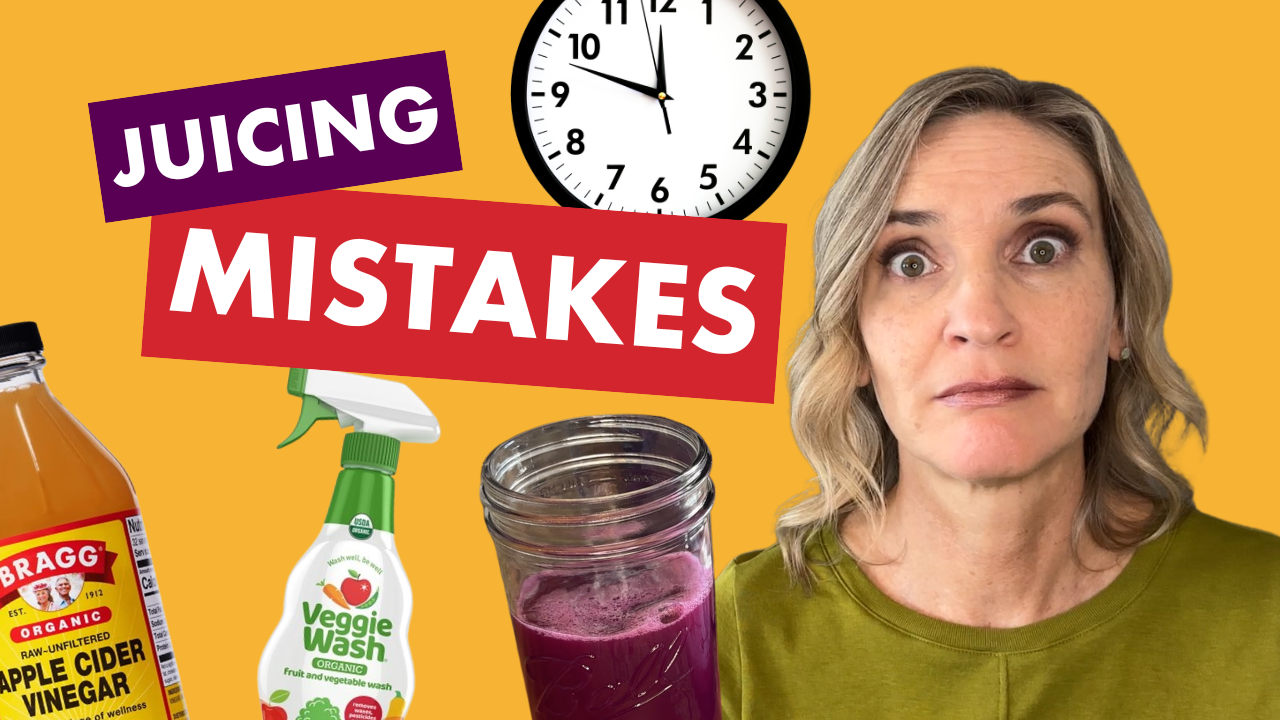
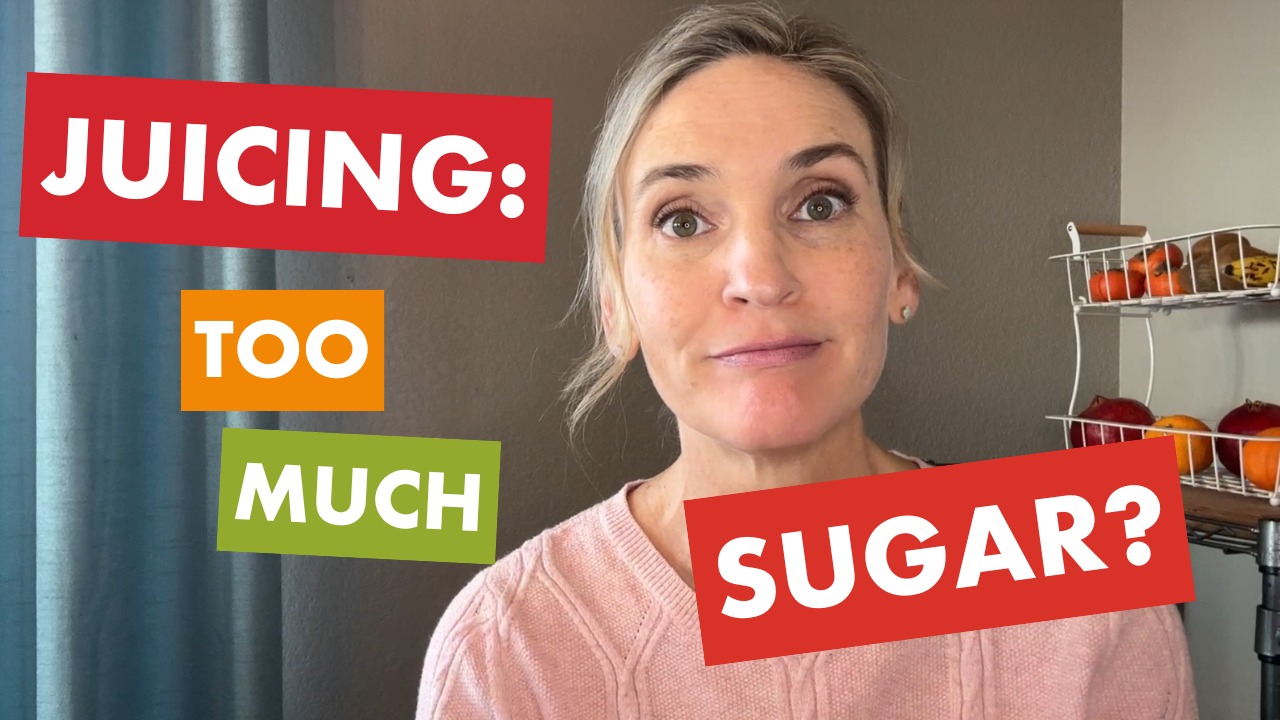

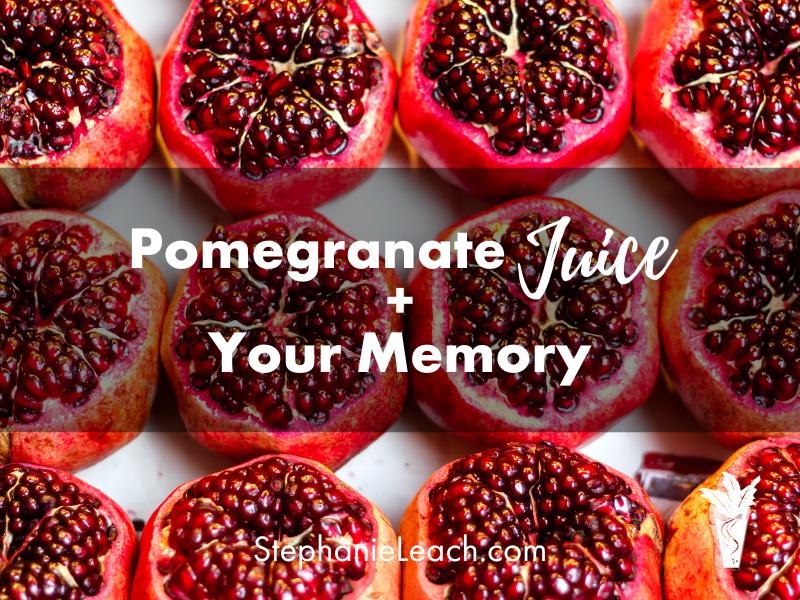
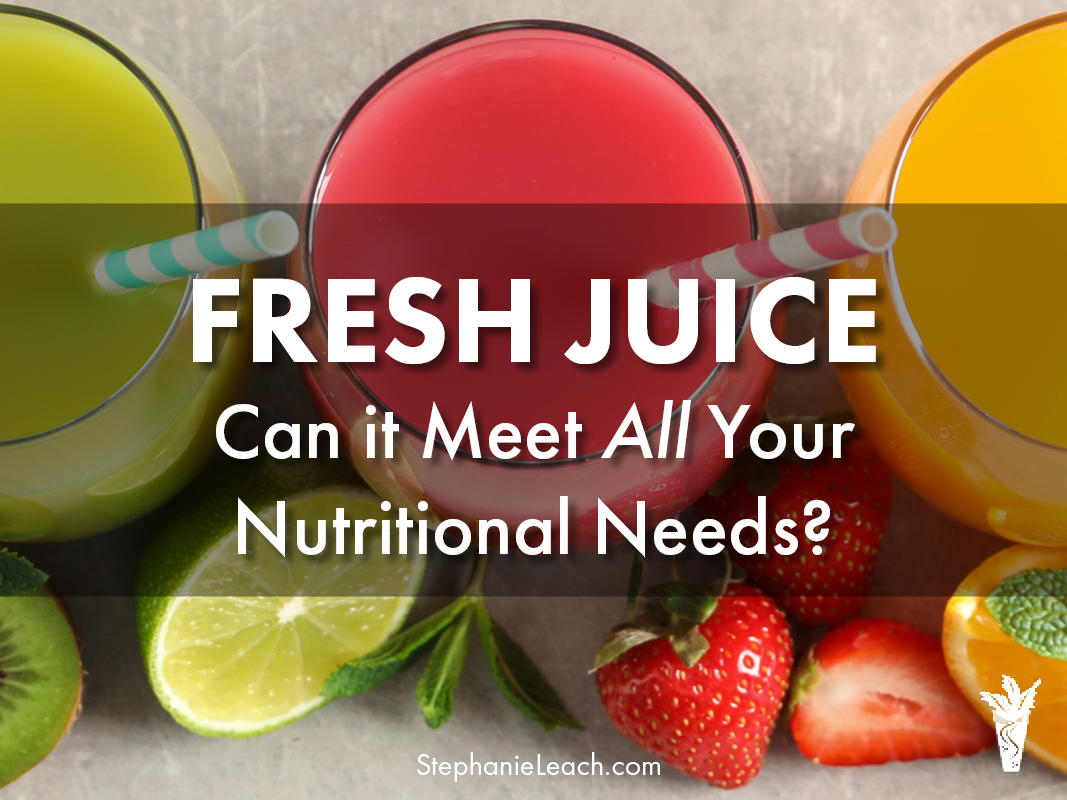
Leave A Comment